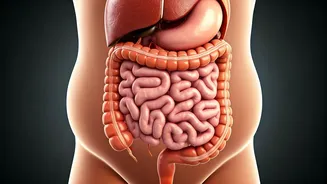The Hormone Connection
The human body is an intricate system, and hormones play a pivotal role in its function. Hormones act as messengers, dictating everything from metabolism
and digestion to mood and energy levels. Fluctuations in hormones can lead to a host of problems, including bloating and difficulty in losing weight. A hormone coach's experience brings into light that the hormonal imbalances can be a significant cause behind the struggle to reach fitness goals. It becomes critical to understand how hormones are related to health issues like these, if a person intends to find an effective way to address them.
Bloating Explained
Bloating, an uncomfortable sensation of fullness and distension in the abdomen, is often linked to dietary choices like excessive sodium, or gas-producing foods. However, hormonal imbalances can also trigger bloating. Estrogen and progesterone, which are present throughout the menstrual cycle, can impact fluid retention, leading to bloating. A hormone coach's experience showcases how hormonal shifts might contribute to the issue. The article will delve into several other factors, providing comprehensive information. This will help readers comprehend how hormonal factors can contribute to their discomfort.
Plateau Busters
Weight loss plateaus, or the halt in progress despite consistent effort, can be incredibly frustrating. Numerous elements can cause these plateaus. For example, the body adapts to regular exercise over time, making it less efficient at burning calories. The coach's insights provide a clear understanding of the complexity of the situation. Some things that can cause this are changes in metabolism, inadequate nutrition, or even stress hormones. Understanding these elements is essential for overcoming such obstacles. Addressing hormonal imbalances, adjusting your workout routine, or re-evaluating nutritional intake are key strategies to jumpstart progress.
The 10k Step Factor
Walking 10,000 steps daily is widely recommended for health and fitness. This can promote cardiovascular health and assist in weight management. However, while walking is beneficial, it might not always guarantee weight loss, especially if other factors are at play. When the body becomes accustomed to the same level of activity, its efficiency increases, potentially leading to a plateau. Also, if diet isn't balanced, the number of steps alone might not lead to the desired results. Combining this strategy with other healthy lifestyle practices is key to success.
Seeking Expert Advice
The journey to optimal health often requires personalized guidance. A hormone coach's perspective and expertise can prove invaluable. They help in recognizing hormonal imbalances. They can conduct tests and assessments to develop a tailored plan. This process might include dietary changes, exercise modifications, stress management techniques, and, in certain cases, hormone replacement therapy. Consulting with a specialist gives a roadmap. This roadmap will empower individuals to address their concerns with informed strategies.
Finding Your Balance
Achieving and sustaining well-being is about understanding your body and responding to its unique needs. By understanding the hormonal aspects and adapting accordingly, individuals can overcome bloating, tackle weight loss plateaus, and make sustainable progress. The right combination of diet, exercise, and support will help you make progress towards your goals. Remember that the path is not always linear, but with consistent effort, perseverance, and professional advice, achieving a healthy and balanced life is within reach.














